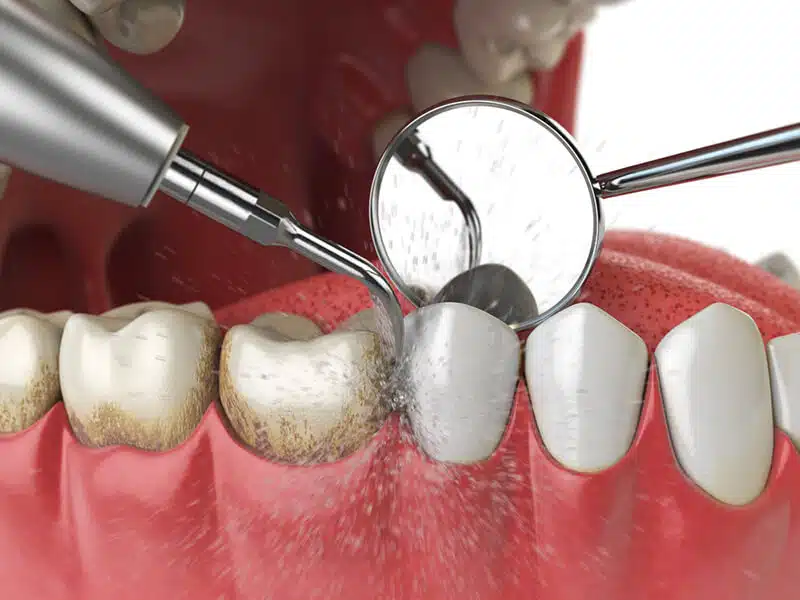Oral prophylaxis, often referred to as dental cleaning or prophylactic cleaning, is a crucial procedure in the realm of preventive dentistry. Its primary goal is to maintain optimal oral health by removing plaque, tartar, and stains from the surfaces of the teeth and along the gum line. This preventive measure is essential for averting a range of dental issues, including cavities, gingivitis, and periodontitis, which can lead to more serious health problems if left untreated.
There are two kinds of appliances used. They are fixed and removable.
During an oral prophylaxis appointment, a dental hygienist or dentist typically begins with a thorough examination of the patient’s mouth. This examination helps identify any areas of concern, such as cavities or early signs of gum disease. Once the assessment is complete, the cleaning process begins.
Scaling: The first step involves scaling, which is the removal of plaque and tartar buildup. Dentists use specialized tools, such as ultrasonic scalers or hand instruments, to carefully scrape away the hardened deposits. This process is essential because tartar cannot be removed by regular brushing or flossing.
Polishing: After scaling, the teeth are polished using a gritty toothpaste-like substance. This step smooths the tooth surfaces, making it harder for plaque to accumulate in the future. Polishing also removes surface stains, enhancing the overall appearance of the teeth.
Fluoride Treatment: In many cases, a fluoride treatment is applied following the cleaning. Fluoride helps strengthen the enamel and provides added protection against cavities. This treatment is especially beneficial for individuals at higher risk of dental decay.
The American Dental Association (ADA) recommends that individuals schedule oral prophylaxis appointments every six months. However, the frequency may vary based on individual needs. Patients with a history of gum disease, heavy plaque buildup, or other risk factors may require more frequent cleanings, such as every three to four months.
Prevention of Gum Disease: Regular cleanings help prevent gingivitis, the earliest stage of gum disease. Early intervention can reverse this condition before it progresses to periodontitis, which can lead to tooth loss and systemic health issues.
Cavity Prevention: By removing plaque and applying fluoride, oral prophylaxis significantly reduces the risk of developing cavities.
Improved Overall Health: Studies have shown a connection between oral health and overall health. Maintaining healthy gums and teeth can reduce the risk of conditions such as heart disease, diabetes, and respiratory infections.
Enhanced Aesthetics: A professional cleaning can improve the appearance of your smile by removing stains and leaving your teeth feeling smooth and polished.
Personalized Oral Care Guidance: During the appointment, dental professionals can provide personalized advice on home care routines, helping patients maintain their oral health between visits.
Oral prophylaxis is more than just a routine dental cleaning; it is a proactive approach to maintaining oral and overall health. By investing in regular cleanings, you are taking significant steps toward preventing dental issues and ensuring a brighter, healthier smile. Whether it’s the feel of a fresh cleaning or the assurance of a healthy mouth, oral prophylaxis is an essential component of effective dental care. Make it a priority in your health routine, and enjoy the benefits of a healthy, confident smile for years to come.
